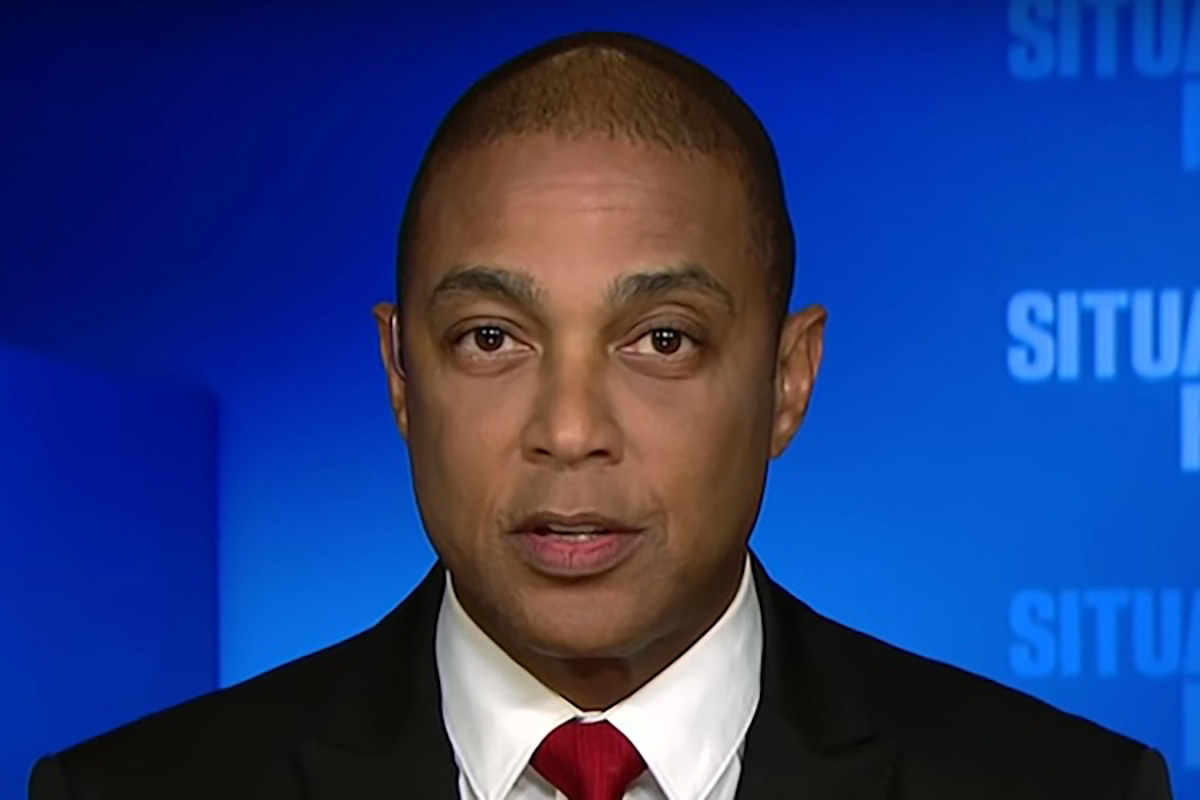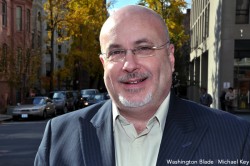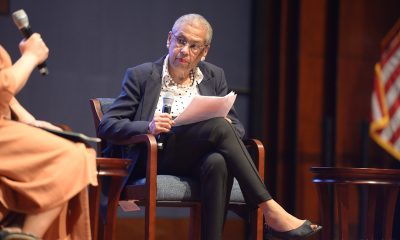National
Gay Wis. lawmaker hopes to win Baldwin’s seat
Pocan pledges active role in LGBT rights fight

It’ll be a tough act for Mark Pocan to follow.
The gay lawmaker in the Wisconsin State Assembly is seeking the seat being vacated at the end of this year by lesbian Rep. Tammy Baldwin (D-Wis.), who’s leaving the U.S. House to pursue a run for the U.S. Senate.
In an interview with the Washington Blade, Pocan, 47, said he wants to represent Wisconsin’s second congressional district to build on the work he’s done during his seven terms in the Wisconsin Assembly and to bring a progressive voice to Congress.
“I’ve always said there’s only one other job I would want,” Pocan said. “Our county executive recently left, and she said, ‘Do you want to run for that?’ She spent six months talking about manure digesters, and that wasn’t something I really thought was that exciting, but legislative work is something I really enjoy. It’s something that I think can have some of the same results at the state level at the federal level.”
The political careers of Baldwin and Pocan have been intertwined. Both served in the early 1990s as members of the Dane County Board of Supervisors. When Baldwin left the State Assembly in 1998 to pursue a run for Congress, Pocan ran to fill her seat.
Among his priorities, Pocan said, is “fighting the proper fight” for progressives on issues related to jobs and the economy. Having run a specialty printing firm for 23 years, Pocan said companies need access to capital to grow and jump start the economy.
“It’s funny to hear Republicans talk about job creators, and they get all excited when the say the words, ‘job creators,’ but their answer to everything is a new tax break for the wealthy,” Pocan said. “I think, when I look at, I know that what small businesses who are my customers need is access to capital, so they grow their business. So, I think I can very credibly provide a small business perspective, but matched with progressive values.”
If elected, Pocan would join other openly gay Democrats in the U.S. House and possibly keep that number at four after Baldwin leaves. Gay Reps. Barney Frank (D-Mass.), Jared Polis (D-Colo.) and David Cicilline (D-R.I.) are incumbents seeking re-election.
Denis Dison, spokesperson for the Gay & Lesbian Victory Fund, said Pocan has what it takes to join the ranks of the other openly gay lawmakers in Congress fighting for LGBT rights. The organization has already endorsed him.
“Mark is a vocal and respected fighter for progressive values, and that’s what people can expect from him as a member of Congress,” Dison said. “In the same tradition as Congresswoman Baldwin, Mark won’t be shy about speaking out for what he believes in, and he’ll be an effective champion for LGBT equality.”
Pocan is married to Phil Frank, 34, who works as operations manager at the print shop that they both own. The couple has been together nine years, and were married five years ago in Toronto, although the state doesn’t recognize their marriage due to a constitutional amendment ratified by Wisconsin voters in 2006.
Pocan said he “absolutely” wants to follow Baldwin’s lead when it comes to fighting for LGBT rights. It’ll be a tall order: Baldwin was the first non-incumbent openly gay person elected to Congress and is a lead coordinator for pro-LGBT initiatives in Congress.
Drawing on his work in the Wisconsin Assembly, Pocan asserted he has the ability to take the lead on LGBT issues in Congress. As a state lawmaker, he played a key role in pushing through domestic partner benefits for state employees and, as part of the state budget, a domestic partner registry enabling same-sex couples in the state to have 43 of the rights and protections of marriage. Both measures went though the Joint Committee on Finance, where Pocan serves as a member.
“Those are two pretty significant measures for our state that are we rather behind on, that we were able to get done through my committee and through my leadership in the last session once the Democrats took control,” Pocan said.
Asked which pro-LGBT measures he’d like to pursue at the federal level, Pocan said he “wants to work with the community” to determine which measures are the highest priority.
“It’s working with the community groups in deciding what we need to move at the right time,” Pocan said. “Because clearly, in some congresses, you’re not going to able to move bills, you’re going to be fighting any bad legislation that could happen.”
Pocan said he supports repeal of the Defense of Marriage Act, which prohibits federal recognition of same-sex marriage, as well as passage of the Employment Non-Discrimination Act and the Uniting American Families Act.
Recalling the recent backlash against the conservative, anti-labor policies of Gov. Scott Walker (R) — who’s facing potential recall — and the fight against the same-sex marriage ban in 2006, Pocan said the LGBT movement is an intrinsic part of the progressive movement as a whole. Earlier this year, Democrats led recall efforts against six Republican state senators and unseated two.
“When we had the fight for collective bargaining, our main political organization, Fair Wisconsin, and many people came with rainbow flags to show support from collective bargaining. I think it’s the collective fight that we have against people who want to take away rights — it’s just growing and becoming more sophisticated and more powerful.”
Pocan urged President Obama to take further action on LGBT rights. An endorsement of marriage equality, Pocan said, is among the steps he wants to see from Obama — as well as other members of Congress — and said an “education process” is necessary to enable Obama to “evolve” as he said he could do.
“When you talk to the president and other members of Congress, let them see what a same-sex couple looks like who are happy married after five years and defying most of the odds of heterosexual couples at that point,” Pocan said. “It’s a matter of getting public officials sometimes to lead like they’re supposed to and making them as a comfortable as possible so they can do the right thing.”
Additionally, Pocan said he “absolutely” wants to see Obama take action to address workplace discrimination against LGBT people. The candidate said he backs the idea of Obama issuing an executive order prohibiting federal dollars from going to contractors and suppliers that don’t have non-discrimnation policies based on sexual orientation and gender identity.
“We’ve looked at this in our state, too, where sometimes you just work the system the best you can,” Pocan said. “You can’t say you’re going to wait necessarily for the political winds that brought in the Tea Party and others to suddenly acquiesce to civil rights. So we need to have the president take a leadership role. I think he’s done a lot of positive things for the community, but there’s a lot more he can do, and I think we need to make it so that there’s a strong environment so that he can get those things accomplished.”
Such an executive order has been seen as an interim solution until Congress can pass ENDA, although the Obama administration hasn’t said whether it will issue the directive.
Wisconsin’s 2nd congressional district — which includes Madison, sometimes referred to as the most gay-friendly district in the country — is a Democratic stronghold, so most observers expect Pocan to have no trouble winning the seat in the general election.
But Pocan won’t have smooth sailing in getting to Congress. In the Democratic primary likely to take place Aug. 14, Pocan is facing at least two Democratic opponents: State Rep. Kelda Helen Roys, who’s been serving in the legislature since 2008, and David Worzala, who was elected three times to the Dane County Board of Supervisors and serves as Dane County Treasurer.
“For us, the primary is the general, so there’s that kind of emphasis on the primary,” Pocan said. “We have to convince the voters that I’ve been a proven fighter for progressive values, got 18 years to look at my record. You know where I’m at, I’m not suddenly going to change, sell out to the Tea Party or something like that. I can best use the skills I’ve built, the accomplishments I’ve had in the legislature and bring that to a federal level.”
Baldwin hasn’t made an endorsement in the House race. Phillip Walzak, a Baldwin campaign spokesperson, said Baldwin thinks either Pocan or Roys would be good candidates to succeed her in representing the second district.
“Tammy has worked closely with Mark over the years, and Tammy thinks both Mark Pocan and Kelda Helen Roys are great candidates for her House seat,” Walzak said.
In terms of fundraising, Pocan is ahead of his Democratic opponents. According to the most recent Federal Election Commission reports, Pocan has raised $123,000 this election cycle and has about the same amount in cash on hand. Comparatively, Roys has raised $70,000 and has $67,000 in cash on hand, while Worzala has raised $55,o00 and has $52,000 in cash on hand.
But Pocan said he has something else to offer the Democratic Party if he’s chosen as the standard-bearer heading into the general election: a track record of helping other Democrats win election. During his time in the Assembly, Pocan said he’s worked on the campaign committee to help elect Democrats to the state legislature.
“Two cycles ago, when we took the majority for the first time in 14 years, I was in charge of that operation,” Pocan said. “I think that that’s something hopefully I can also bring to Congress. Having a very safe district like the 2nd district means whoever wins the primary will very likely be the next member of Congress. I think there’s an obligation to seat like that to help elect other Democrats.”
The election of more Democrats, Pocan said, would be key to advancing LGBT rights and other issues important to the progressive movement.
“Hopefully I can do that sort of thing and help in Congress because unless I help elect more Democrats, it’s not likely that I’ll pass the very things, the values I have and my district has,” Pocan said.
National
Federal authorities arrest Don Lemon
Former CNN anchor taken into custody two weeks after Minn. church protest

Federal authorities on Thursday arrested former CNN anchor Don Lemon in Los Angeles.
CNN reported authorities arrested Lemon after 11 p.m. PT while in the lobby of a hotel in Beverly Hills, Calif., while he “was leaving for an event.” Lemon’s lawyer, Abbe Lowell, in a statement said his client was in Los Angeles to cover the Grammy Awards.
Authorities arrested Lemon less than two weeks after he entered Cities Church in St. Paul, Minn., with a group of protesters who confronted a pastor who works for U.S. Immigration and Customs Enforcement. (An ICE agent on Jan. 7 shot and killed Renee Good, a 37-year-old Minneapolis woman who left behind her wife and three children. U.S. Customs and Border Protection agents on Jan. 24 shot and killed Alex Pretti, a 37-year-old nurse who worked for the Department of Veterans Affairs, in Minneapolis.)
Lemon insists he was simply covering the Cities Church protest that interrupted the service. A federal magistrate last week declined to charge the openly gay journalist in connection with the demonstration.
“Don Lemon was taken into custody by federal agents last night in Los Angeles, where he was covering the Grammy awards,” said Lowell in his statement. “Don has been a journalist for 30 years, and his constitutionally protected work in Minneapolis was no different than what he has always done. The First Amendment exists to protect journalists whose role it is to shine light on the truth and hold those in power accountable.”
“Instead of investigating the federal agents who killed two peaceful Minnesota protesters, the Trump Justice Department is devoting its time, attention and resources to this arrest, and that is the real indictment of wrongdoing in this case,” Lowell added. “This unprecedented attack on the First Amendment and transparent attempt to distract attention from the many crises facing this administration will not stand. Don will fight these charges vigorously and thoroughly in court.”
Attorney General Pam Bondi on X confirmed federal agents “at my direction” arrested Lemon and three others — Trahern Jeen Crews, Georgia Fort, and Jamael Lydell Lundy — “in connection with the coordinated attack on Cities Church in St. Paul, Minnesota.”
Fort is also a journalist.
At my direction, early this morning federal agents arrested Don Lemon, Trahern Jeen Crews, Georgia Fort, and Jamael Lydell Lundy, in connection with the coordinated attack on Cities Church in St. Paul, Minnesota.
More details soon.
— Attorney General Pamela Bondi (@AGPamBondi) January 30, 2026
Lemon, who CNN fired in 2023, is expected to appear in court in Los Angeles on Friday.
“Freedom of the press is a cornerstone of a free society; it is the tool by which Americans access the truth and hold power to account. But Donald Trump and Pam Bondi are at war with that freedom — and are threatening the fundamentals of our democracy,” said Human Rights Campaign President Kelley Robinson on Friday in a statement. “Don Lemon and Georgia Fort were doing their jobs as reporters. Arresting them is not law enforcement it is an attack on the Constitution at a moment when truthful reporting on government power has never been more important. These are the actions of a despot, the tactics of a dictator in an authoritarian regime.”
The White House
Expanded global gag rule to ban US foreign aid to groups that promote ‘gender ideology’
Activists, officials say new regulation will limit access to gender-affirming care

The Trump-Vance administration has announced it will expand the global gag rule to ban U.S. foreign aid for groups that promote “gender ideology.”
Deputy Secretary of State Christopher Landau in a memo, titled Combating Gender Ideology in Foreign Assistance, the Federal Register published on Jan. 27 notes “previous administrations … used” U.S. foreign assistance “to fund the denial of the biological reality of sex, promoting a radical ideology that permits men to self-identify as women, indoctrinate children with radical gender ideology, and allow men to gain access to intimate single-sex spaces and activities designed for women.”
“Efforts to eradicate the biological reality of sex fundamentally attack women by depriving them of their dignity, safety, and well-being. It also threatens the wellbeing of children by encouraging them to undergo life-altering surgical and chemical interventions that carry serious risks of lifelong harms like infertility,” reads the memo. “The erasure of sex in language and policy has a corrosive impact not just on women and children but, as an attack on truth and human nature, it harms every nation. It is the purpose of this rule to prohibit the use of foreign assistance to support radical gender ideology, including by ending support for international organizations and multilateral organizations that pressure nations to embrace radical gender ideology, or otherwise promote gender ideology.”
President Donald Trump on Jan. 28, 2025, issued an executive order — Protecting Children from Chemical and Surgical Mutilation — that banned federal funding for gender-affirming care for minors.
President Ronald Reagan in 1985 implemented the global gag rule, also known as the “Mexico City” policy, which bans U.S. foreign aid for groups that support abortion and/or offer abortion-related services.
Trump reinstated the rule during his first administration. The White House this week expanded the ban to include groups that support gender-affirming care and diversity, equity, and inclusion programs.
The expanded global gag rule will take effect on Feb. 26.
“None of the funds made available by this act or any other Act may be made available in contravention of Executive Order 14187, relating to Protecting Children From Chemical and Surgical Mutilation, or shall be used or transferred to another federal agency, board, or commission to fund any domestic or international non-governmental organization or any other program, organization, or association coordinated or operated by such non-governmental organization that either offers counseling regarding sex change surgeries, promotes sex change surgeries for any reason as an option, conducts or subsidizes sex change surgeries, promotes the use of medications or other substances to halt the onset of puberty or sexual development of minors, or otherwise promotes transgenderism,” wrote Landau in his memo.
Landau wrote the State Department “does not believe taxpayer dollars should support sex-rejecting procedures, directly or indirectly for individuals of any age.”
“A person’s body (including its organs, organ systems, and processes natural to human development like puberty) are either healthy or unhealthy based on whether they are operating according to their biological functions,” reads his memo. “Organs or organ systems do not become unhealthy simply because the individual may experience psychological distress relating to his or her sexed body. For this reason, removing a patient’s breasts as a treatment for breast cancer is fundamentally different from performing the same procedure solely to alleviate mental distress arising from gender dysphoria. The former procedure aims to restore bodily health and to remove cancerous tissue. In contrast, removing healthy breasts or interrupting normally occurring puberty to ‘affirm’ one’s ‘gender identity’ involves the intentional destruction of healthy biological functions.”
Landau added there “is also lack of clarity about what sex-rejecting procedures’ fundamental aims are, unlike the broad consensus about the purpose of medical treatments for conditions like appendicitis, diabetes, or severe depression.”
“These procedures lack strong evidentiary foundations, and our understanding of long-term health impacts is limited and needs to be better understood,” he wrote. “Imposing restrictions, as this rule proposes, on sex-rejecting procedures for individuals of any age is necessary for the (State) Department to protect taxpayer dollars from abuse in support of radical ideological aims.”
Landau added the State Department “has determined that applying this rule to non-military foreign assistance broadly is necessary to ensure that its foreign assistance programs do not support foreign NGOs and IOs (international organizations) that promote gender ideology, and U.S. NGOs that provide sex-rejecting procedures, and to ensure the integrity of programs such as humanitarian assistance, gender-related programs, and more, do not promote gender ideology.”
“This rule will also allow for more foreign assistance funds to support organizations that promote biological truth in their foreign assistance programs and help the (State) Department to establish new partnerships,” he wrote.
The full memo can be found here.
Council for Global Equality Senior Policy Fellow Beirne Roose-Snyder on Wednesday said the expansion of the so-called global gag rule will “absolutely impact HIV services where we know we need to target services, to that there are non-stigmatizing, safe spaces for people to talk through all of their medical needs, and being trans is really important to be able to disclose to your health care provider so that you can get ARVs, so you can get PrEP in the right ways.” Roose-Snyder added the expanded ban will also impact access to gender-affirming health care, food assistance programs and humanitarian aid around the world.
“This rule is not about gender-affirming care at all,” she said during a virtual press conference the Universal Access Project organized.
“It is about really saying that if you want to take U.S. funds — and it’s certainly not about gender-affirming care for children — it is if you want to take U.S. funds, you cannot have programs or materials or offer counseling or referrals to people who may be struggling with their gender identity,” added Roose-Snyder. “You cannot advocate to maintain your country’s own nondiscrimination laws around gender identity. It is the first place that we’ve ever seen the U.S. government define gender-affirming care, except they call it something a lot different than that.”
The Congressional Equality Caucus, the Democratic Women’s Caucus, the Congressional Hispanic Caucus, the Congressional Asian and Pacific American Caucus, and the Congressional Black Caucus also condemned the global gag rule’s expansion.
“We strongly condemn this weaponization of U.S. foreign assistance to undermine human rights and global health,” said the caucuses in a statement. “We will not rest until we ensure that our foreign aid dollars can never be used as a weapon against women, people of color, or LGBTQI+ people ever again.”

Advocacy groups are demanding the Trump-Vance administration not to deport two gay men to Iran.
MS Now on Jan. 23 reported the two men are among the 40 Iranian nationals who the White House plans to deport.
Iran is among the countries in which consensual same-sex sexual relations remain punishable by death.
The Washington Blade earlier this month reported LGBTQ Iranians have joined anti-government protests that broke out across the country on Dec. 28. Human rights groups say the Iranian government has killed thousands of people since the demonstrations began.
Rebekah Wolf of the American Immigration Council, which represents the two men, told MS Now her clients were scheduled to be on a deportation flight on Jan. 25. A Human Rights Campaign spokesperson on Tuesday told the Blade that one of the men “was able to obtain a temporary stay of removal from the” 10th U.S. Circuit Court of Appeals, and the other “is facing delayed deportation as the result of a measles outbreak at the facility where they’re being held.”
“My (organization, the American Immigration Council) represents those two gay men,” said American Immigration Council Senior Fellow Aaron Reichlin-Melnick in a Jan. 23 post on his Bluesky account. “They had been arrested on charges of sodomy by Iranian moral police, and fled the country seeking asylum. They face the death penalty if returned, yet the Trump (administration) denied their asylum claims in a kangaroo court process.”
“They are terrified,” added Reichlin-Melnick.
My org @immcouncil.org represents those two gay men. They had been arrested on charges of sodomy by Iranian moral police, and fled the country seeking asylum. They face the death penalty if returned, yet the Trump admin denied their asylum claims in a kangaroo court process.
They are terrified.
— Aaron Reichlin-Melnick (@reichlinmelnick.bsky.social) January 23, 2026 at 8:26 AM
Reichlin-Melnick in a second Bluesky post said “deporting people to Iran right now, as body bags line the street, is an immoral, inhumane, and unjust act.”
“That ICE is still considering carrying out the flight this weekend is a sign of an agency and an administration totally divorced from basic human rights,” he added.
Deporting people to Iran right now, as body bags line the street, is an immoral, inhumane, and unjust act. That ICE is still considering carrying out the flight this weekend is a sign of an agency and an administration totally divorced from basic human rights. www.ms.now/news/trump-d…
— Aaron Reichlin-Melnick (@reichlinmelnick.bsky.social) January 23, 2026 at 8:27 AM
HRC Vice President of Government Affairs David Stacy in a statement to the Blade noted Iran “is one of 12 nations that still execute queer people, and we continue to fear for their safety.” Stacy also referenced Renee Good, a 37-year-old lesbian woman who a U.S. Immigration and Customs Enforcement agent shot and killed in Minneapolis on Jan. 7, and Andry Hernández Romero, a gay Venezuelan asylum seeker who the Trump-Vance administration “forcibly disappeared” to El Salvador last year.
“This out-of-control administration continues to target immigrants and terrorize our communities,” said Stacy. “That same cruelty murdered Renee Nicole Good and imprisoned Andry Hernández Romero. We stand with the American Immigration Council and demand that these men receive the due process they deserve. Congress must refuse to fund this outrage and stand against the administration’s shameless dismissal of our constitutional rights.”
-

 Real Estate5 days ago
Real Estate5 days agoConvert rent check into an automatic investment, Marjorie!
-

 Theater5 days ago
Theater5 days agoSwing actor Thomas Netter covers five principal parts in ‘Clue’
-

 District of Columbia4 days ago
District of Columbia4 days agoEleanor Holmes Norton ends 2026 reelection campaign
-

 Opinions4 days ago
Opinions4 days agoICE agents murder another American citizen in Minneapolis





















